 So, we're lucky to have a sizable GNU Radio contingent here today, and I'd love it if everyone involved could write a little about who they are and what they do within the org.
So, we're lucky to have a sizable GNU Radio contingent here today, and I'd love it if everyone involved could write a little about who they are and what they do within the org.
 Bios!
Bios!
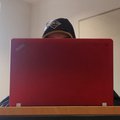 I'm more of a UEFI guy
I'm more of a UEFI guy
 troll
troll
 I'm enthusiastic. I think that's the biggest point. I did my university in electrical and computer engineering and joined the Amateur Radio club after the first year.
I'm enthusiastic. I think that's the biggest point. I did my university in electrical and computer engineering and joined the Amateur Radio club after the first year.
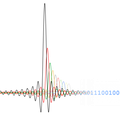 so, how did you end up with GNU Radio, by the way?
so, how did you end up with GNU Radio, by the way?
 Good Day everyone
Good Day everyone
 I was really fortunate that it had some ancient equipment and neglected in the corner a software defined radio
I was really fortunate that it had some ancient equipment and neglected in the corner a software defined radio
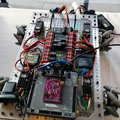 @Derek Are you still a HAM?
@Derek Are you still a HAM?
 Yes I am. MW0LNA in the UK
Yes I am. MW0LNA in the UK
 and K0ZEL in the USA. mostly "active" in the microwave bands
and K0ZEL in the USA. mostly "active" in the microwave bands
 That's a pretty sweet call sign!
That's a pretty sweet call sign!
 @Derek, Cool, I'm WB4PHJ here in just outside of Washington, DC.
@Derek, Cool, I'm WB4PHJ here in just outside of Washington, DC.
 Derek gets more ham cred just for his call signs than others for their gear :)
Derek gets more ham cred just for his call signs than others for their gear :)
 Marcus, I got into GNU Radio during my masters. I did an evolutionary algorithms project optimizing digital modulation and used GNU Radio as the simulator
Marcus, I got into GNU Radio during my masters. I did an evolutionary algorithms project optimizing digital modulation and used GNU Radio as the simulator
 I forget why I knew about it at that point
I forget why I knew about it at that point
 I ended up presenting that work at GNU Radio Conference in Washington DC, 2014
I ended up presenting that work at GNU Radio Conference in Washington DC, 2014
 Is GNU radio being used in any commercial transceivers?
Is GNU radio being used in any commercial transceivers?
 @Mike Anderson indeed, it is!
@Mike Anderson indeed, it is!
 There's a company running satellite base stations, for example.
There's a company running satellite base stations, for example.
 Absolutely
Absolutely
 Cool, which ones if you can think of any?
Cool, which ones if you can think of any?
 That said, we often have a hard time finding out about who is using GNU Radio
That said, we often have a hard time finding out about who is using GNU Radio
 I can't think of anyone openly selling radios intended for the general public that use GNU Radio
I can't think of anyone openly selling radios intended for the general public that use GNU Radio
 but there are a fair number of commercial specialized systems that use it, often designed by the company actually using the systems
but there are a fair number of commercial specialized systems that use it, often designed by the company actually using the systems
 I can imagine that not many users are willing to say that publicly. But, under GPL, don't they have to reveal that?
I can imagine that not many users are willing to say that publicly. But, under GPL, don't they have to reveal that?
 I'm one of the GNU Radio Project Officers. I have been involved with organizing the upcoming GNU Radio Conference 2018 in Henderson, NV. I’ve rebuilt the gnuradio.org site to migrate it from a WP arch. One of the pet projects I am working on is a web/browser based version of GRC/frontend for GNU Radio.
I'm one of the GNU Radio Project Officers. I have been involved with organizing the upcoming GNU Radio Conference 2018 in Henderson, NV. I’ve rebuilt the gnuradio.org site to migrate it from a WP arch. One of the pet projects I am working on is a web/browser based version of GRC/frontend for GNU Radio.
 While we're at it: I'm the community manager for GNU Radio, and have done various activities for the project over the last 10 years. Also a member of the foundation.
While we're at it: I'm the community manager for GNU Radio, and have done various activities for the project over the last 10 years. Also a member of the foundation.
 Thanks for the intros. Nice to meet you! Here's a question from @Chris Handwerker:
Thanks for the intros. Nice to meet you! Here's a question from @Chris Handwerker:
"I'm a ham and a programmer who would like to get their feet wet with SDR and GNU radio.
What's the best place to get started for someone with a decent technical background? Is there a kit or a specific SDR I should get? Could you recommend good literature?"
 GPL would require them to release the source code directly using GNU Radio to their customers if they sold a system that used GNU Radio
GPL would require them to release the source code directly using GNU Radio to their customers if they sold a system that used GNU Radio
 @Chris Handwerker : I would get my hands on an RTL-SDR dongle first
@Chris Handwerker : I would get my hands on an RTL-SDR dongle first
 If it's internal to a company then the end user already has access to the Source code
If it's internal to a company then the end user already has access to the Source code
 @Mike Anderson I'd argue a talk titled "A Global Satellite Communications Network with GNU Radio" (on http://www.trondeau.com/grcon14-presentations/) is pretty public ;)
@Mike Anderson I'd argue a talk titled "A Global Satellite Communications Network with GNU Radio" (on http://www.trondeau.com/grcon14-presentations/) is pretty public ;)
 It can only receive, and only has limited bandwidth, but it's super cheap
It can only receive, and only has limited bandwidth, but it's super cheap
 IANAL of course
IANAL of course
 Once you get started, you will quickly figure out what you want to do next
Once you get started, you will quickly figure out what you want to do next
 There are various companies that sell higher-bandwidth equipment (disclaimer: I work for one of those, Ettus Research)
There are various companies that sell higher-bandwidth equipment (disclaimer: I work for one of those, Ettus Research)
 @Marcus Müller Yeah, that would seem pretty public. ;-)
@Marcus Müller Yeah, that would seem pretty public. ;-)
 to get started , the wiki is a great spot , we have a suggested reading page - https://wiki.gnuradio.org/index.php/SuggestedReading
to get started , the wiki is a great spot , we have a suggested reading page - https://wiki.gnuradio.org/index.php/SuggestedReading
 You can even skip the hardware altogether and do everything in software/simulation, but of course that's less fun
You can even skip the hardware altogether and do everything in software/simulation, but of course that's less fun
 Michael Ossman's online Videos on SDR/DSP are a great spot to start as well: http://greatscottgadgets.com/sdr/
Michael Ossman's online Videos on SDR/DSP are a great spot to start as well: http://greatscottgadgets.com/sdr/
 We also have recommended tutorials to get you started with GNU Radio itself, https://wiki.gnuradio.org/index.php/Guided_Tutorials
We also have recommended tutorials to get you started with GNU Radio itself, https://wiki.gnuradio.org/index.php/Guided_Tutorials
 And we have tutorials on the wiki as well https://wiki.gnuradio.org/index.php/Tutorials
And we have tutorials on the wiki as well https://wiki.gnuradio.org/index.php/Tutorials
 ha
ha
 So, while we're introducing ourselves:
So, while we're introducing ourselves:
Hi, I'm Marcus.
I'm the project maintainer, which means I'm the one responsible for all things code. Which doesn't mean I'm a dictator at all – we've got a pretty embracing contributing policy, and most decisions are discussed with as much affected developers and users as possible.
Myself, I'm just an EE with a slight passion for Software Defined Radio and especially this project.
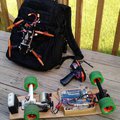 Currently, the lowest cost SDRs that can transmit and work with GNU Radio are the LimeSDR-mini for $140 and Analog Devices ADALM-PLUTO for $99 if you're a student (someone correct me if I'm missing one)
Currently, the lowest cost SDRs that can transmit and work with GNU Radio are the LimeSDR-mini for $140 and Analog Devices ADALM-PLUTO for $99 if you're a student (someone correct me if I'm missing one)
 see, that's what I meant with "hivemind giving the same answers simultaneously"
see, that's what I meant with "hivemind giving the same answers simultaneously"
 @Chris Handwerker: Also, I would recommend joining the mailing list (discuss-gnuradio) or the Slack or IRC chat rooms
@Chris Handwerker: Also, I would recommend joining the mailing list (discuss-gnuradio) or the Slack or IRC chat rooms
 There's simply so many tutorials out there scattered across the webs, it's good to ask people of they think a certain tutorial is still up to date
There's simply so many tutorials out there scattered across the webs, it's good to ask people of they think a certain tutorial is still up to date
 @Marc Lichtman there might be (mainly ham) devices that use sound card stereo channels as IQ output to mix onto an IF and then onto the actual carrier frequency
@Marc Lichtman there might be (mainly ham) devices that use sound card stereo channels as IQ output to mix onto an IF and then onto the actual carrier frequency
 ah yes, for you hams out there
ah yes, for you hams out there
 Second what @Martin Braun just said! There's a lot of good things out there, but the paradigms of usage have shifted over the years
Second what @Martin Braun just said! There's a lot of good things out there, but the paradigms of usage have shifted over the years
 Yes, the SoftRock devices for example.
Yes, the SoftRock devices for example.
 but nothing beats a $20 RTL-SDR for the complete beginner who shouldn't be transmitting anyway =)
but nothing beats a $20 RTL-SDR for the complete beginner who shouldn't be transmitting anyway =)
 Hey Clayton, nice hearing from you again! Your HD Radio implementation is still epic!
Hey Clayton, nice hearing from you again! Your HD Radio implementation is still epic!
 thanks guys
thanks guys
 Speaking of things changing, how has GNU Radio changed over the years? What are people doing with it today that might not have been foreseen in the early days of the project?
Speaking of things changing, how has GNU Radio changed over the years? What are people doing with it today that might not have been foreseen in the early days of the project?
 People are putting GNU Radio into space now
People are putting GNU Radio into space now
 I think the biggest change has been the growth of the community. It started out as a group of hardcore enthusiasts.
I think the biggest change has been the growth of the community. It started out as a group of hardcore enthusiasts.
 @Mike Anderson by the way, I want to pick up on your "does anyone use GNU Radio but doesn't want to talk about it for license reasons" question. I do happen to know that a large manufacturer of very specialized radio receiver ICs is using a GNU Radio OOT module to test their reception of a certain broadcasting standard. They can freely do so – they can even modify it to their heart's delight! The only thing is, if they built a testing device that *contains* GNU Radio and *delivered that to someone*, they would also have to deliver the source code to whoever they gave the device (for money or free)
@Mike Anderson by the way, I want to pick up on your "does anyone use GNU Radio but doesn't want to talk about it for license reasons" question. I do happen to know that a large manufacturer of very specialized radio receiver ICs is using a GNU Radio OOT module to test their reception of a certain broadcasting standard. They can freely do so – they can even modify it to their heart's delight! The only thing is, if they built a testing device that *contains* GNU Radio and *delivered that to someone*, they would also have to deliver the source code to whoever they gave the device (for money or free)
 Now, we need to be more aware of people who are just starting, and/or have expertise in one domain but not another (e.g. software vs. RF electronics)
Now, we need to be more aware of people who are just starting, and/or have expertise in one domain but not another (e.g. software vs. RF electronics)
 @Martin Braun absolutely! When we started, it was a club of brave radio engineers and enthusiasts with different motivations
@Martin Braun absolutely! When we started, it was a club of brave radio engineers and enthusiasts with different motivations
 I'm personally very happy about this development, but it means more work in terms documentation, tooling, ease-of-use, etc.
I'm personally very happy about this development, but it means more work in terms documentation, tooling, ease-of-use, etc.
![]() I just say this yesterday on the rtl-sdr.com site.. ultrasound.... interesting... https://www.rtl-sdr.com/tag/ultrasonic/
I just say this yesterday on the rtl-sdr.com site.. ultrasound.... interesting... https://www.rtl-sdr.com/tag/ultrasonic/
 @Marcus Müller OK, that's consistent with my understanding of the GPL. Do they contribute anything back to the community that you know of?
@Marcus Müller OK, that's consistent with my understanding of the GPL. Do they contribute anything back to the community that you know of?
 but now we see people use GNU Radio for wildlife tracking, for security testing, for medical stuff, for radio astronomy (but that was a **very** early usage, too!)
but now we see people use GNU Radio for wildlife tracking, for security testing, for medical stuff, for radio astronomy (but that was a **very** early usage, too!)
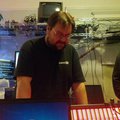 I seem to recall GNU Radio coming about because of the FCC's idiotic Broadcast Flag proposal... is that recollection correct, or was there more to it?
I seem to recall GNU Radio coming about because of the FCC's idiotic Broadcast Flag proposal... is that recollection correct, or was there more to it?
 @Karl Koscher: Yeah, that's right!
@Karl Koscher: Yeah, that's right!
 That goes way back
That goes way back
 Even very early versions of GNU Radio had code to decode ATSC
Even very early versions of GNU Radio had code to decode ATSC
 TBH, this predates even my involvement
TBH, this predates even my involvement
 @Mike Anderson so, yes, but it depends on the company. We've got large companies sponsoring the GNU Radio Conference next month. Others just use GNU Radio internally and we never even hear from them! That's a bummer.
@Mike Anderson so, yes, but it depends on the company. We've got large companies sponsoring the GNU Radio Conference next month. Others just use GNU Radio internally and we never even hear from them! That's a bummer.
 But the gist was, "let's get an ATSC decoder out there (open source) so its use can be grandfathered in"
But the gist was, "let's get an ATSC decoder out there (open source) so its use can be grandfathered in"
 However, I wouldn't go so far as to say that was the entire reason behind GNU Radio
However, I wouldn't go so far as to say that was the entire reason behind GNU Radio
 glad the broadcast flag proposal never really went anywhere... i seem to recall a proposal to regulate high-speed ADCs in response
glad the broadcast flag proposal never really went anywhere... i seem to recall a proposal to regulate high-speed ADCs in response
 I think it was pretty clear that the world needed a free software-based framework for SDR
I think it was pretty clear that the world needed a free software-based framework for SDR
 yeah, the legend goes that Eric Blossom (the first maintainer) needed to show a copy protection bit is not a "effective copyright protection measure" against the MPAA or so
yeah, the legend goes that Eric Blossom (the first maintainer) needed to show a copy protection bit is not a "effective copyright protection measure" against the MPAA or so
 others used GNU Radio because they simply wanted to do SDR
others used GNU Radio because they simply wanted to do SDR
 yeah, looking at the wikipedia page, it seems like it was initially based on an SDR framework from MIT
yeah, looking at the wikipedia page, it seems like it was initially based on an SDR framework from MIT
 other had hardware but no software for SDR
other had hardware but no software for SDR
 pspectrum, yeah. However, there's no more shared code left.
pspectrum, yeah. However, there's no more shared code left.
 ... I removed some Octave m-code that literally just calculated a running sum the other week. that might just as well have been from that era. But I'm pretty sure none of the code in GNU Radio goes back that far.
... I removed some Octave m-code that literally just calculated a running sum the other week. that might just as well have been from that era. But I'm pretty sure none of the code in GNU Radio goes back that far.
 But really, the dominant change since then is the sheer size of its user base
But really, the dominant change since then is the sheer size of its user base
 like, it feels like there's a million labs out there, in hackspaces, RF companies, not-so-RF-but-still-need-some-radio-analysis-or-signal-generation companies, and universities
like, it feels like there's a million labs out there, in hackspaces, RF companies, not-so-RF-but-still-need-some-radio-analysis-or-signal-generation companies, and universities
 Again, we're sometimes a bit bummed out that few people tell us what cool stuff they've built with the software we develop
Again, we're sometimes a bit bummed out that few people tell us what cool stuff they've built with the software we develop
 The core framework has interface improvements, updates to dependencies, and benefits from improvements to the VOLK library and others. I think it's the growth and maturation of the out of tree blocks for different applications that is the biggest code change
The core framework has interface improvements, updates to dependencies, and benefits from improvements to the VOLK library and others. I think it's the growth and maturation of the out of tree blocks for different applications that is the biggest code change
 random question: is there a good way to do things that aren't strictly stream or message-based in GNU Radio? For example, performing overlapping FFTs on a stream. Of course you could do this in a custom block but I'm wondering if there's a way to do this with off-the-shelf blocks
random question: is there a good way to do things that aren't strictly stream or message-based in GNU Radio? For example, performing overlapping FFTs on a stream. Of course you could do this in a custom block but I'm wondering if there's a way to do this with off-the-shelf blocks
 That sounds like an extremely stream thing to do! :)
That sounds like an extremely stream thing to do! :)
 gr-specest has blocks that do that
gr-specest has blocks that do that
 well, the overlapping part means that you're double-processing samples that stream in
well, the overlapping part means that you're double-processing samples that stream in
 so, there's already a block that does that, and it's the FFT FIR filter
so, there's already a block that does that, and it's the FFT FIR filter
 My approach would be an embedded python block that shifts out overlapping buffers. It'd be only a few lines of code
My approach would be an embedded python block that shifts out overlapping buffers. It'd be only a few lines of code
 true
true
 Or use the existing block ^^ :)
Or use the existing block ^^ :)
 There is also a way to overlap using the "any" block from gr-baz by Balint https://github.com/balint256/gr-baz
There is also a way to overlap using the "any" block from gr-baz by Balint https://github.com/balint256/gr-baz
 sweet
sweet
 @Karl Koscher: "overlapping FFTs" can be implemented by using the history feature of the streaming interfaces
@Karl Koscher: "overlapping FFTs" can be implemented by using the history feature of the streaming interfaces
 The embedded python block can be done within GRC and is a frequently overlooked feature that is hugely powerful
The embedded python block can be done within GRC and is a frequently overlooked feature that is hugely powerful
 EXTREMELY overlooked
EXTREMELY overlooked
 ... I am not aware of either the history feature or embedded python blocks in GRC, so that's good to know!
... I am not aware of either the history feature or embedded python blocks in GRC, so that's good to know!
 like "OK, you basically know how to write three lines of python? Sure, you can write a packet decoder for AX.25!" (or whatever floats your boat)
like "OK, you basically know how to write three lines of python? Sure, you can write a packet decoder for AX.25!" (or whatever floats your boat)
 Lets jump up a few levels, incase most of the audience hasn't used GNU Radio before
Lets jump up a few levels, incase most of the audience hasn't used GNU Radio before
 Karl: Derek's right, but: Hit the mailing list with a description
Karl: Derek's right, but: Hit the mailing list with a description
 Eric Mortensen
Eric Mortensen
Discussions
Become a Hackaday.io Member
Create an account to leave a comment. Already have an account? Log In.